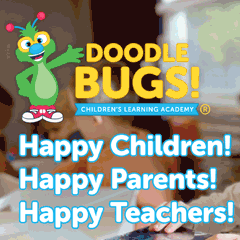Protecting Kids from the Impact of Pornography
 If your child has spent any unsupervised time online lately, chances are he or she has encountered content that would be considered “adult.” Despite a parent’s best efforts, sexual material is readily available, not only from web sites that specialize in pornography, but also in music, videos, TV sitcoms, advertising, and cellphone apps.
If your child has spent any unsupervised time online lately, chances are he or she has encountered content that would be considered “adult.” Despite a parent’s best efforts, sexual material is readily available, not only from web sites that specialize in pornography, but also in music, videos, TV sitcoms, advertising, and cellphone apps.
A parent’s first impulse may be to put a hand over the child’s eyes – clearly an ineffective measure. Instead, parents must figure out how to help children develop healthy attitudes about sexuality despite the prevalence of unhealthy images. Think about teaching kids how to eat a nutritious diet. Junk food is pretty attractive, so parents coach their children to make wise choices in a world full of things that look tempting but aren’t necessarily healthy. The same approach should be taken when it comes to pornography.
Conversations about sex are certainly more challenging than conversations about food choices, so it helps to have a clear goal. Marty Klein, a family therapist and author of Sexual Intelligence, argues that what most people want from sexual relationships is closeness and pleasure. Both are more likely found in trusting relationships, so the question is really how to help children develop the capacity for that kind of commitment. If you have kids, chances are you already have some thoughts about how to build a loving relationship with a sexual partner. The goal is to share your insights and your values (but not your anxieties) with your child. Here are a few suggestions:
- Take a deep breath. Your child is going to encounter sexual content. Experts say exposure to sexual material is not necessarily traumatic. The trauma occurs when parents overreact, making a child feel ashamed or even deviant. You are more likely to have a calm conversation if you prepare yourself by talking to other parents and doing a little helpful reading (check out answer.rutgers.edu/page/websites/). The more you can take the emotion out of these conversations, the more likely you will have a positive influence on your child.
- Point out the good stuff. Often kids take an interest in sexually explicit materials because they want information about what bodies look like and how they fit together. Although you’ll want to encourage your child to come to you with questions, you can also provide websites that offer accurate and reliable content. Try Kidshealth.org for pre-teen questions, or iwannaknow.org and sexetc.org for teenagers.
- Differentiate between sex and pornography. Sex is a natural part of adult life. Pornography is…well, there’s no single message about pornography because the word is used to describe everything from simple pictures of nudity to violent depictions of criminal acts. For young children, the best strategy is to say that pornography is for adults, so you’re going to install filters that will block it. Free filters for computers and cellphones are available at www.k9webprotection.com. Tell your child that if something related to sex pops up on a screen despite your safety measures, he or she can talk to you or just click “close”.
Once children reach puberty, they deserve more nuanced conversations about explicit sexual images. Instead of labeling them “bad,” you can talk about how pornography varies a great deal and adults have different opinions about its purpose. Share your point of view and listen to what your child has to say.
- Take a hard line on violence. Exposure to violent sexual images is harmful to both genders. One study found that girls who watched violent pornography were more likely to become victims of assault, while boys were more likely to engage in sexual harassment and aggression. Parents should limit access to all mediums featuring sexual violence. Make it clear that coercion should never be part of a sexual relationship.
- Talk about feelings. Sexual images give the impression that sex is just about bodies. People who have satisfying sexual relationships are also attuned to feelings—both their own and those of their partner. Parents can help kids become aware of their own emotions by regularly asking “How does that make you feel?” Klein recommends using this question to help children explore their emotional responses to everything from a provocative photo on Facebook to a sexualized version of a pop cartoon. Do the images seem confusing, exciting, upsetting, funny, intimidating? Cultivate empathy by asking how other people, including the characters in a movie or the models in a photograph, might be feeling.
Perhaps the best way to protect your child from inappropriate sexuality online is to nurture positive, emotionally open relationships in your own home. Recent research from the Netherlands found that children who have strong connections with parents and friends are more likely to develop committed, loving relationships. That kind of relationship is “adult” in the fullest and best sense of the word.










